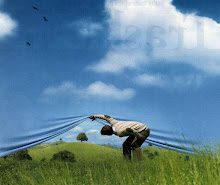–verb (used without object), -lat·ed, -lat·ing.
| 1. | to waver in mind or opinion; be indecisive or irresolute: His tendency to vacillate makes him a poor leader. |
| 2. | to sway unsteadily; waver; totter; stagger. |
| 3. | to oscillate or fluctuate. |
~~~~~~~
Meat is a clear violation of my ethics concerning animals—at the very least, I have no qualms believing animals deserve the right to life. But where other rights are concerned, I have become uncertain.
Both food choices (vegetarian and vegan) are protests, as I’m not the one performing the injustice, but I am helping it along by being a participant. But I’m sincerely stuck on milk and eggs, since, were these two products taken from these animals in the wild, I would have much less of a problem with it. Like the byproducts of any animal, these, so long as retrieving the items without causing undue harm or detriment to the creature’s existence, would carry with it little immoral benefit--I am somewhat (but not convincingly) leaning toward these not being inherently ill-gotten gains. A case can be made for leaving animals alone altogether, including reaping whatever benefits they might sow—I myself have made such a case in the past. But does it hold up?
Should cows and chickens be unknowing beneficiaries of our enjoyment/satiating? I cannot think of reasons why they should. If we can find alternatives, then where to we get the right to plant our flag in their midst? Yet again, one can refer to the fact that humans have done such flag planting everywhere, from land to agriculture and up to animals, but these animals we’re considering are no automata. I have considered automata, and interference in that only worries me to the extent that we assume too much as ours, but at least the cruelty caused through suffering or even restraint is fairly unknowing to those being taken advantage of (i.e. bugs and the like). But cows and chickens, with cows especially highlighted, are sentient beings. They may be dumber that us, but what rights do they have as lifeforms? Do they have the right to live? Certainly. Do they have the right not to be manipulated? I don’t know.
My sympathies often rest on the side of the animals, due to the unavoidable truth that (most) humans could live completely without the byproducts of milk and eggs. As well, factory farming intuitively tugs at me as wrong, as even should these creatures’ lives be safe (under some other system), their existences would be, primarily, for our benefit, with little gained in return apart from, perhaps, a more pacified and less stressful existence (depending on the conditions under which they are raised). Should we reap what benefits they have to sow, if a compromise can be met, if they can be allowed to live as they will and our exchange for their goods in some way benefits them? Is veganism a protest, or a categorical ethical imperative? I don’t know.
I am vexed.

3 comments:
It is a vexing debate. I myself feel that using milk or eggs from free range animals is not as bad as buying from the national chain grocery store, but also find it perplexing if it is ethical to use these animal's products. By buying free range products I may be feeding into the same evil but on a lesser scale, but it may still be evil. I'm curious as to your thoughts on free range animals and there use strictly for milk and eggs, and in no way harming or killing the animals.
Here's a couple of concerns about the consumption/production of free-range eggs:
1. They're not healthy -- too much cholesterol
2. It perpetuates the anthropocentric myth that animals are natural resources for us to enjoy or exploit.
3. It can involve business connections to -- or, at the very least, is hard to distinguish from -- more intensive methods of factory farming.
I agree. Many of my more intensive concerns about this matter stem from my having decided to go vegan last week, and how difficult it has become. I am still, with relative certainty, convinced that not only are the health benefits sound, and the benefits to the global welfare worthwhile, but that higher-sentient creatures do not exist for our benefit. As such, I think it anthropocentric to treat animals well so long as they produce for us, or to in any way rely on that which we might take from them. Free range is definitely the lesser evil, considering the alternative, but I still think it insufficient. I cannot convince myself, nor do I believe there is reason in believing, that the lives of higher sentience animals should be curbed, taken advantage of, or delegated in service of our desires. So long as there is a healthy alternative, I do believe, at this point in time, that I ought to be a vegan.
In other words, Number 2 on Johnson's concerns is vital and true. So long as animals do not harm us, and so long as they do not take advantage of us (here referencing the way in which they could lead healthy lives so long as we are able to take advantage of their products), we have an opportunity and even an obligation to do the same. Even if they're unharmed, they're technically enslaved (the word sounds harsh, but I can think of no more appropriate alternative). I already generally oppose our anthropocentric approach to occupying the world. Peeling that back by starting with creatures harmed (due to their sentience) the most is a good and necessary place to start.
Post a Comment